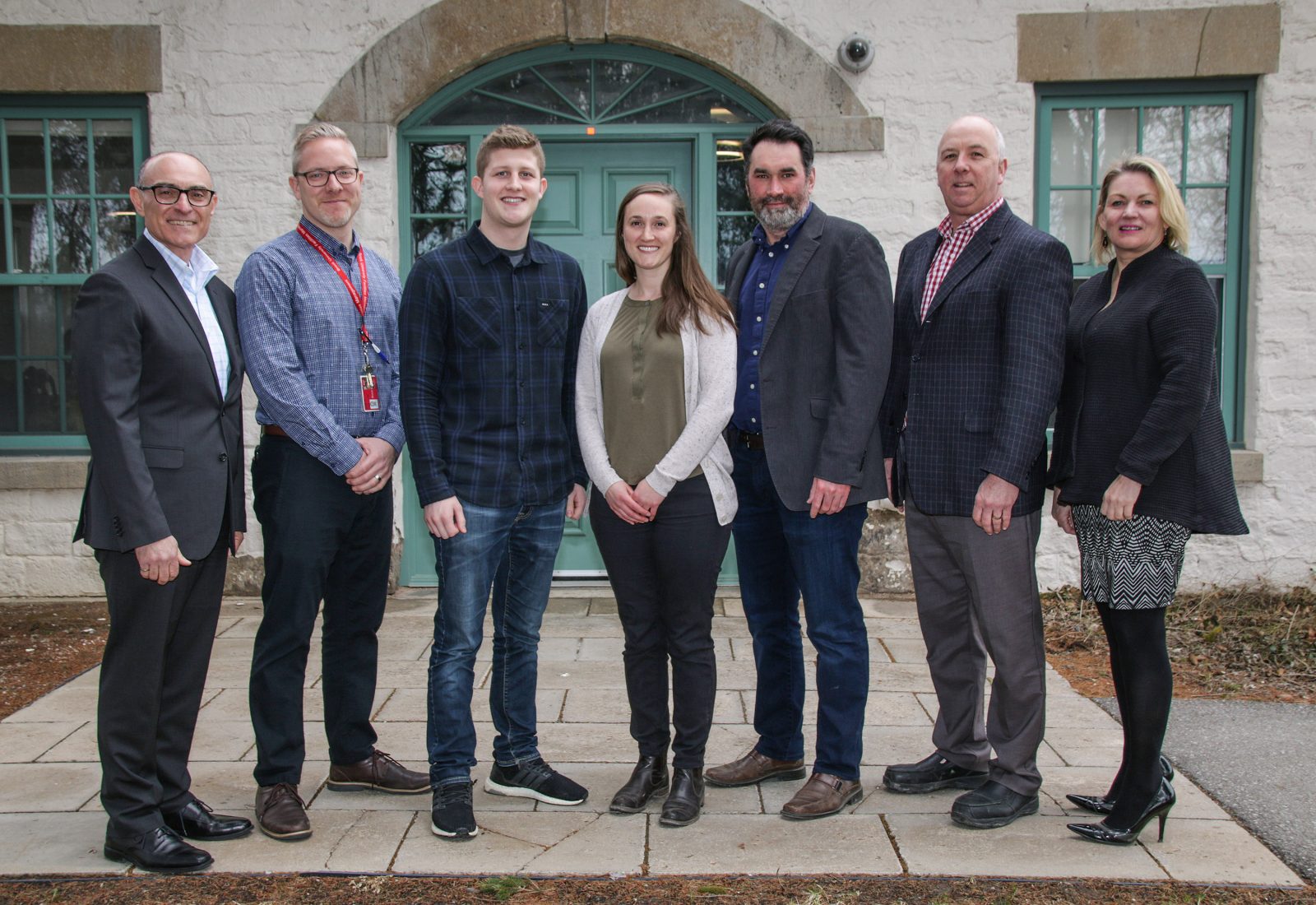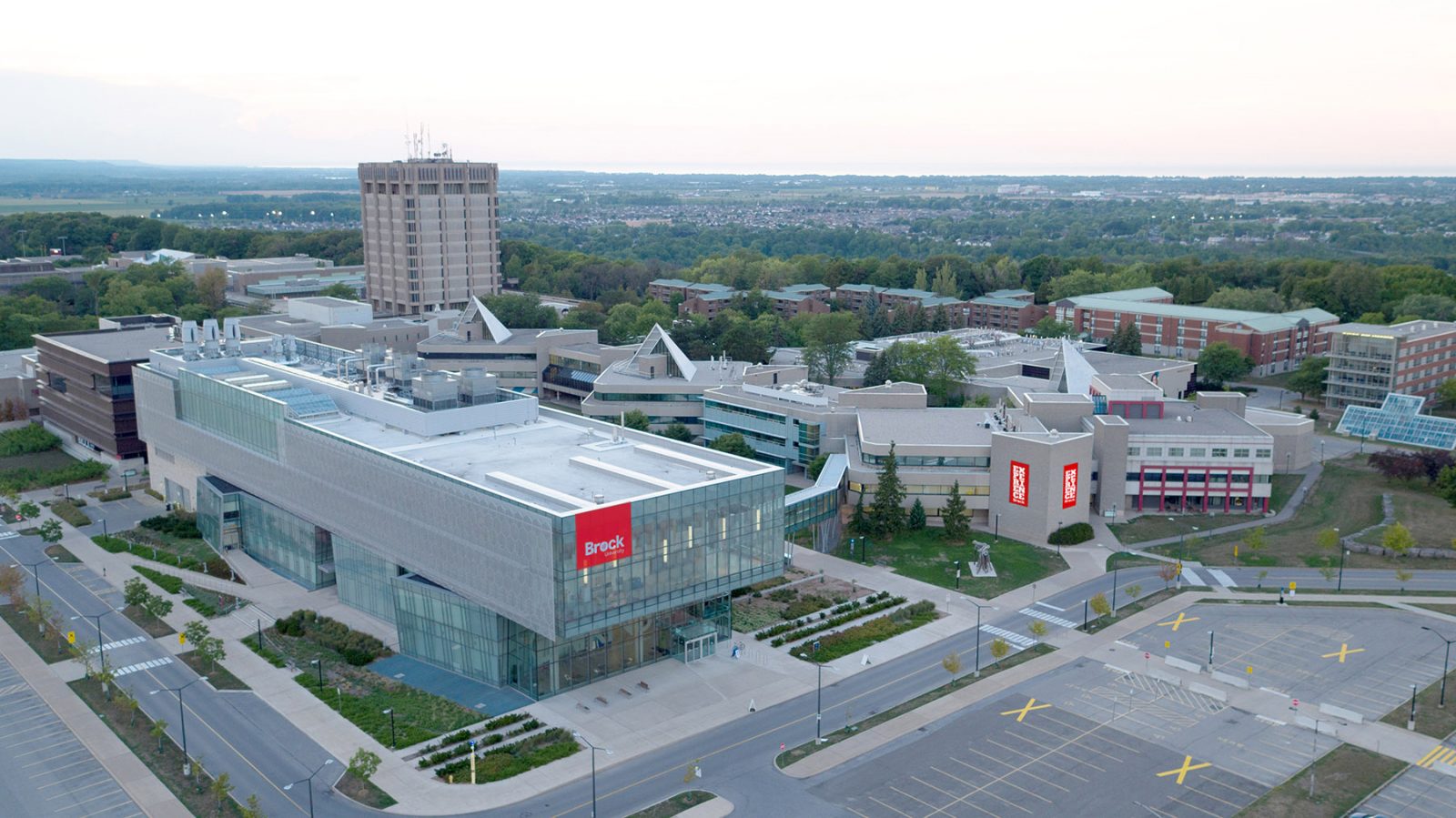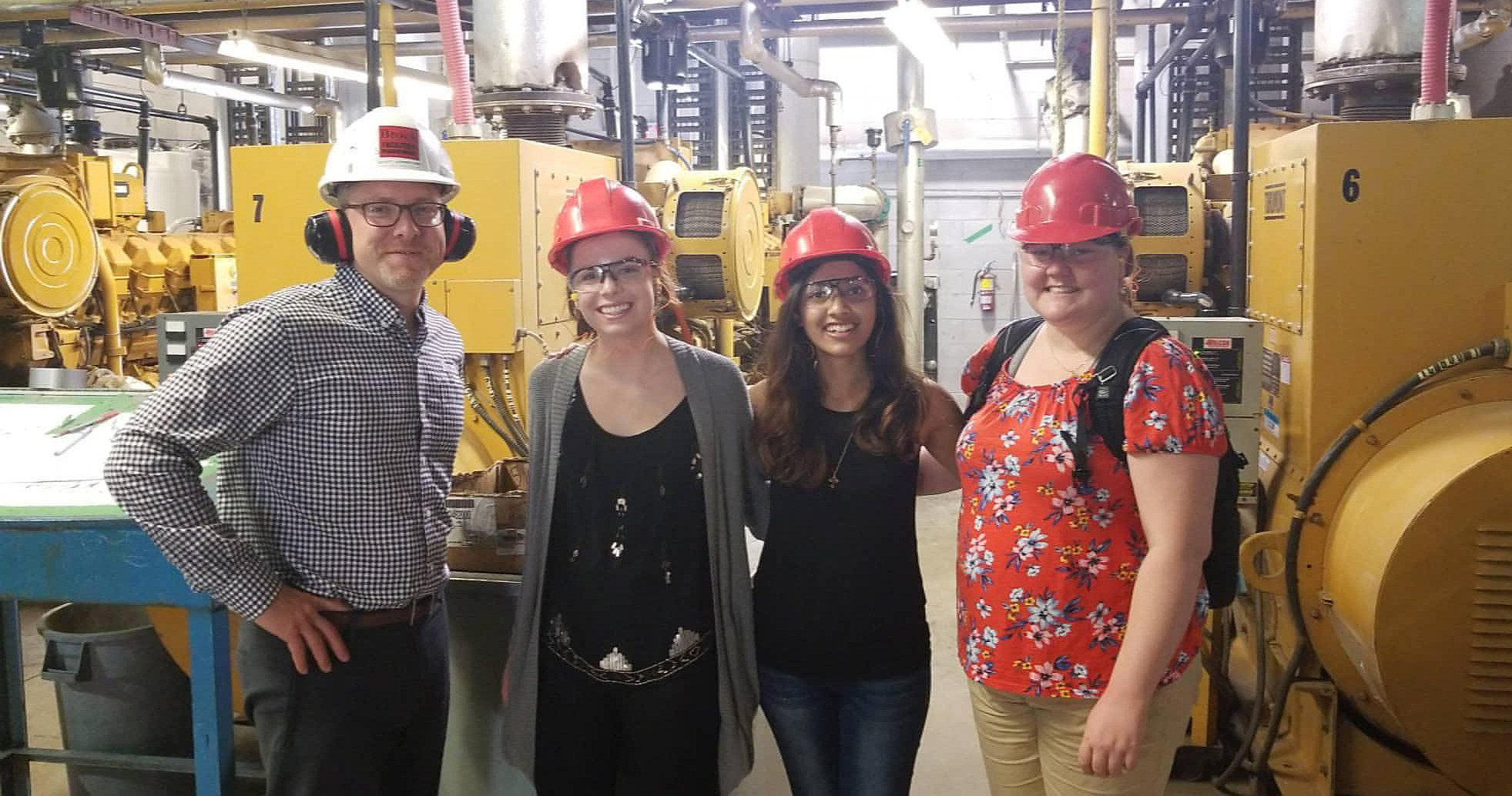 During a recent visit to campus, officials from Toromont Cat visited with recipients of sustainability scholarships funded by the company. From left are Toromont Cat General Manager Lou Colangelo, Scott Johnstone, Brock’s Associate Vice-President, Facilities Management, scholarship recipients Nolan Kelly and Meredith DeCock, Ryan Plummer, Director of the Environmental Sustainability Research Centre, Ron Cocking, Toromont Cat EPG Market Manager, and Ingrid Makus, Dean of Brock’s Faculty of Social Sciences.
During a recent visit to campus, officials from Toromont Cat visited with recipients of sustainability scholarships funded by the company. From left are Toromont Cat General Manager Lou Colangelo, Scott Johnstone, Brock’s Associate Vice-President, Facilities Management, scholarship recipients Nolan Kelly and Meredith DeCock, Ryan Plummer, Director of the Environmental Sustainability Research Centre, Ron Cocking, Toromont Cat EPG Market Manager, and Ingrid Makus, Dean of Brock’s Faculty of Social Sciences.Through a combination of community backing and word spreading across campus, wind is picking up in the sails of Brock’s sustainability programming.
The University’s minor in sustainability, launched in fall 2017 and offered through Brock’s Environmental Research Centre (ESRC), will see its first cohort of students graduate in June.
Two of the soon-to-be grads, as well as three graduate students in the Sustainability Science and Society program introduced by the ESRC in 2014, received scholarships for their studies through a $5,000 donation from Toromont Cat
.
Photo: Brock students who will soon graduate with a minor in sustainability were celebrated recently by the Environmental Sustainability Research Centre. Pictured is student Nolan Kelly, Faculty of Social Sciences Dean Ingrid Makus, ESRC Director Ryan Plummer, and students Mikayla Richards and Abbey Faris.
Officials from the construction company were on campus last week to meet with students whose lives were impacted by their support.
Providing funds for sustainability scholarships was a natural progression from the long-standing partnership Toromont has had with the University and its co-generation facility, said Lou Colangelo, the company’s General Manager.
“We’ve been working with Brock for many years through its power plant and supporting students by giving them exposure to the industry,” he said.
The company, he added, is pleased to provide financial support as well as mentorship opportunities that connect students with professionals who have decades of experience in the energy and sustainability field.
“The industry is constantly evolving, so getting exposure to fresh thinking and to young minds that have not been focused on the path we’ve been looking at is also a huge benefit.”
The financial boost allowed graduate student Meredith DeCock to begin pursing her sustainability studies at Brock last fall.
“The scholarship enabled me to take on projects and an extra course in addition to focusing on my program requirements,” she said. “Providing me with the ability to focus on my full-time studies, the Toromont scholarship enriched my learning and research experience over the past year.”
Other scholarship recipients included graduate students Brooke Kapeller and Leaya Amey, and undergraduate students Nolan Kelly and Kaitlyn James.
ESRC Director Ryan Plummer said the partnership with Toromont “serves as a powerful illustration to students, faculty and staff of the innovation that can be achieved through meaningful collaboration.”
The minor in environmental sustainability was created “to respond to pressing social and ecological challenges and opportunities in Niagara, nationally and globally,” he said. “Units across the University worked collaboratively with the ESRC to make this important program part of Brock’s curriculum. The enthusiastic response by students far exceeds our initial expectations. It is very rewarding to see our first cohort of students graduating with the minor and I am incredibly proud of them.”
Brock has been collaborating with Toromont for more than 25 years to “provide reliable, cost-effective energy to our campus community,” said Scott Johnstone, Associate Vice-President, Facilities Management. “We’re now advancing this partnership with a new generation of high efficiency equipment. In addition, we are conducting research together to test new engine oils and additives to extend equipment life, all while making our plant more sustainable.”
Story from The Brock News








